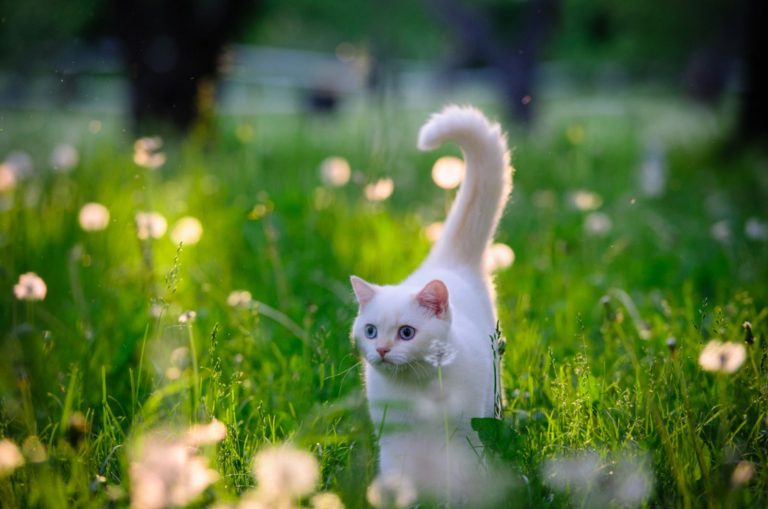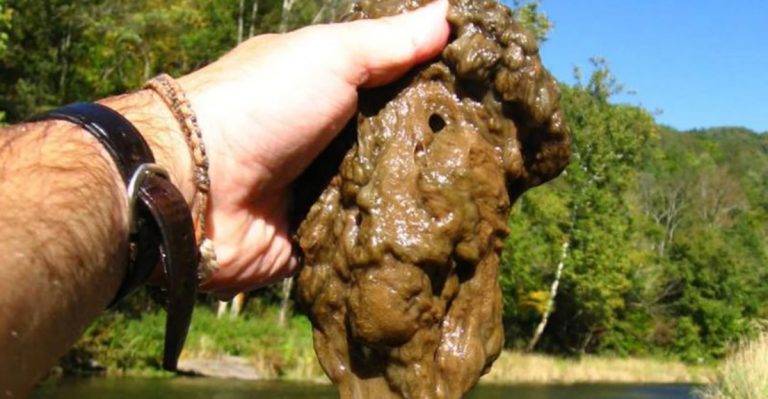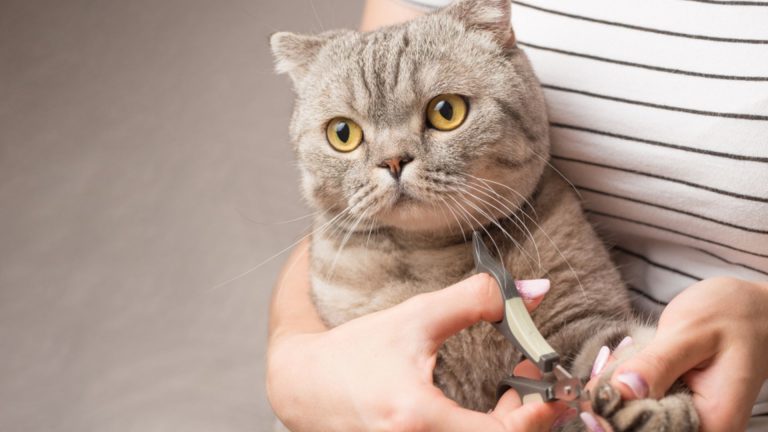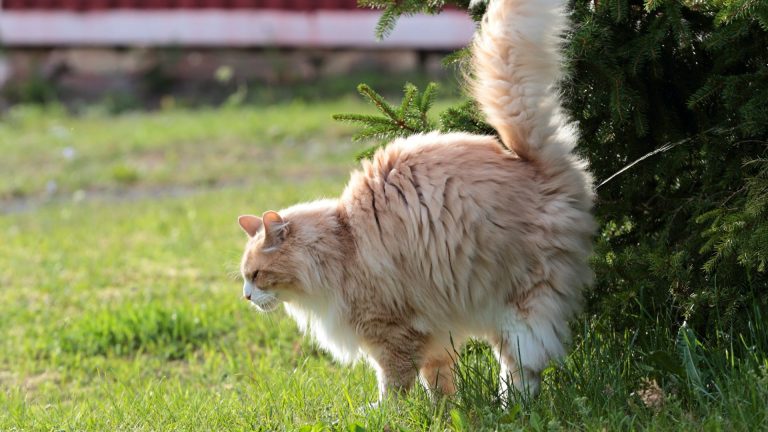Indoor Cats And Baths: How Often Does Your Furry Diva Really Need To Hit The Tub?
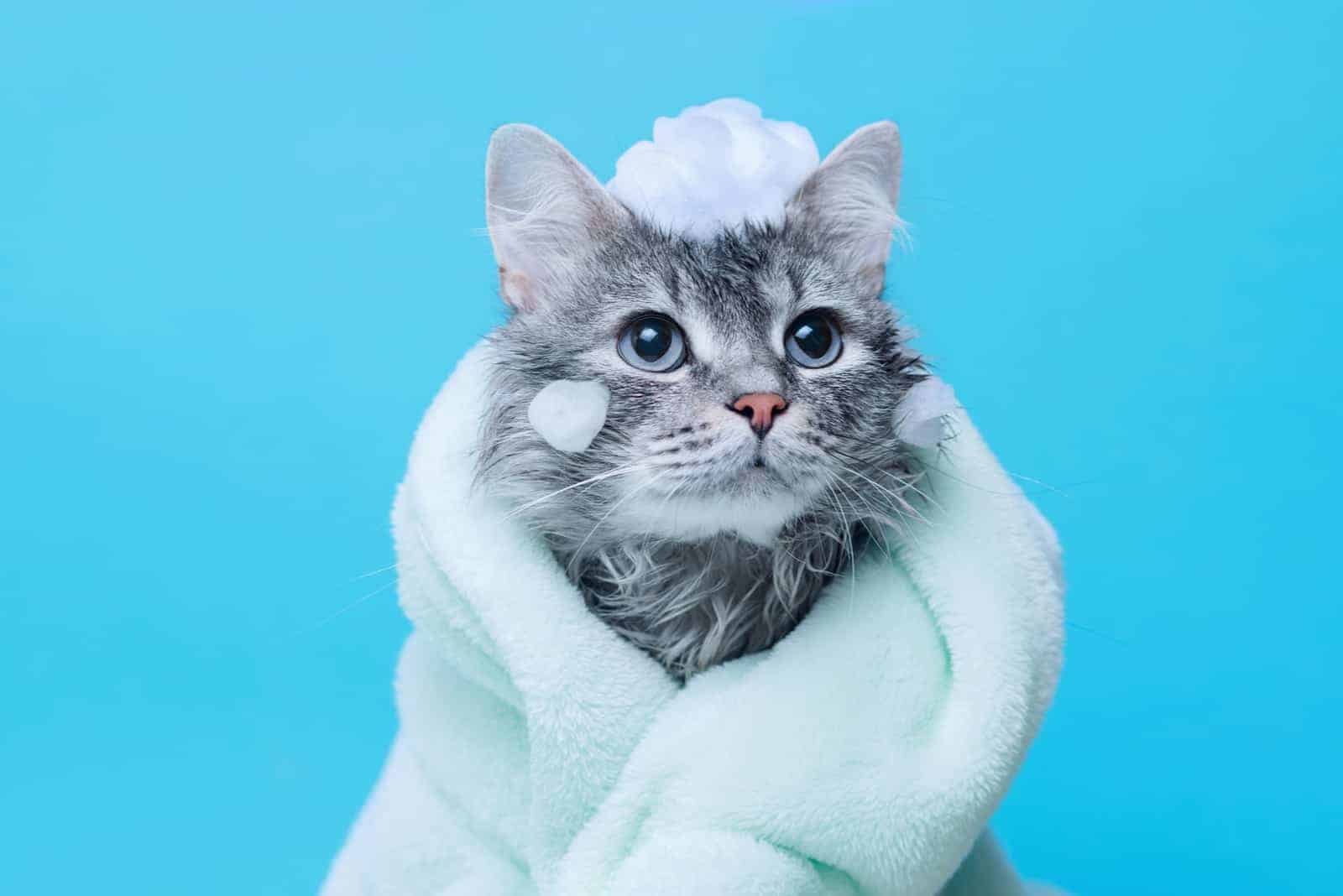
Every cat owner knows how tricky it can be to bathe their cat. Cats don’t usually like water, so bathing them can be quite tricky and the entire experience can be pretty chaotic.
However, we do need to bathe our beloved feline friends every once in a while, but how often?
I, for one, bathe my cats every 6 months or so, unless they require it sooner due to outdoor adventures, let’s say.
My cat Ben loves it when I groom and bathe him, while Honey considers me her worst enemy every time we step into the bathroom.
The good thing is that we don’t need to do it very often. The reason why you don’t need to bathe your cats frequently is that they do a really good job of cleaning themselves.
Feline Self-Grooming Behavior
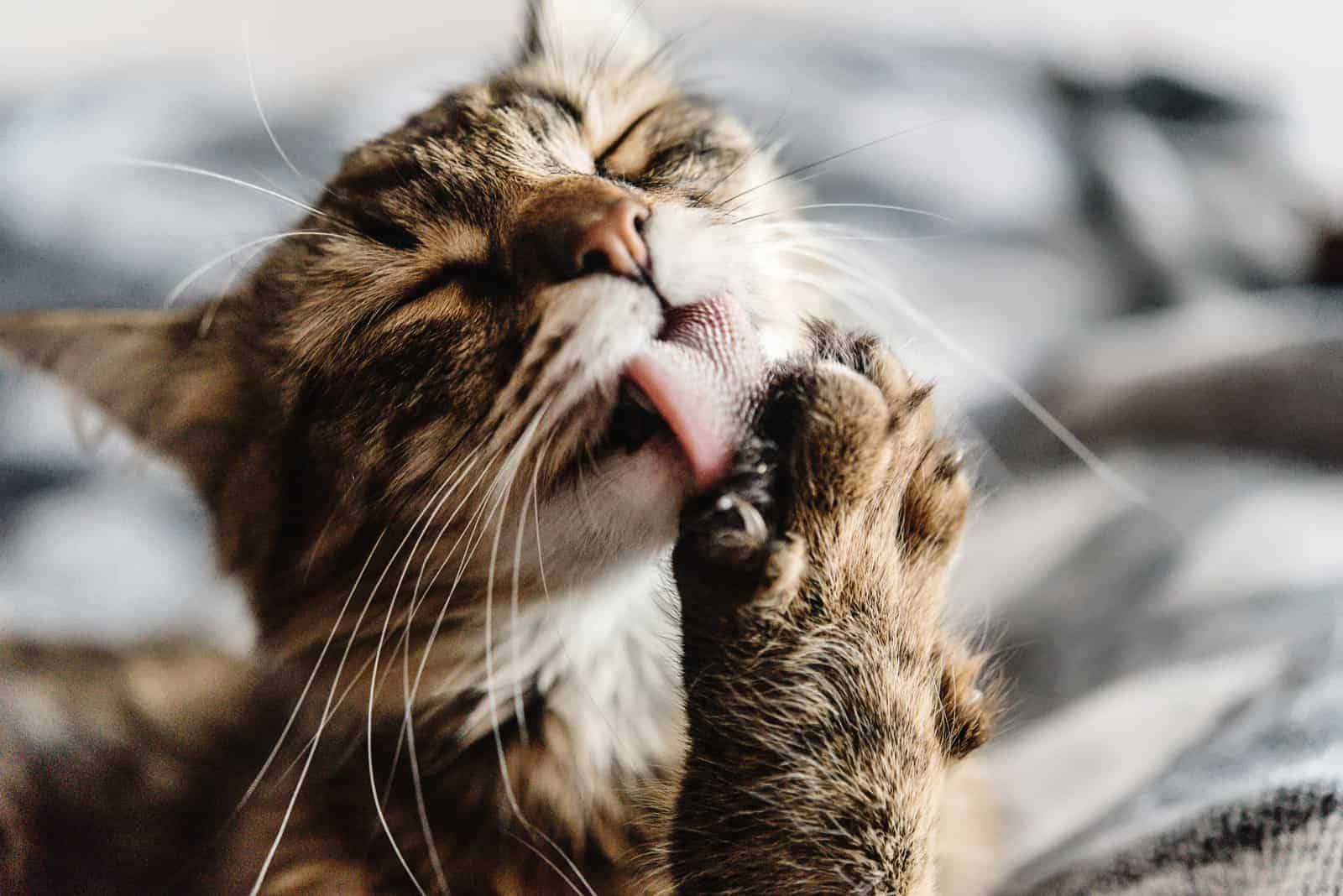
Cats spend most of their time grooming themselves, which is what makes them great groomers. This is their way of cleaning their fur, removing parasites, and even detangling hairs.
Grooming also redistributes the oils produced by the cat’s skin, which helps keep cats’ fur somewhat waterproof. As you will know, cats do a really good job of cleaning themselves, which is why frequent bathing isn’t necessary.
It can be stressful for the cat and could even lead to some health issues associated with the washing away of the cat’s natural oils. If you bathe your cat too often, every time you pick it up it will feel like something bad is about to happen.
And nobody wants that, right?
Factors That Influence The Frequency Of Cat Baths
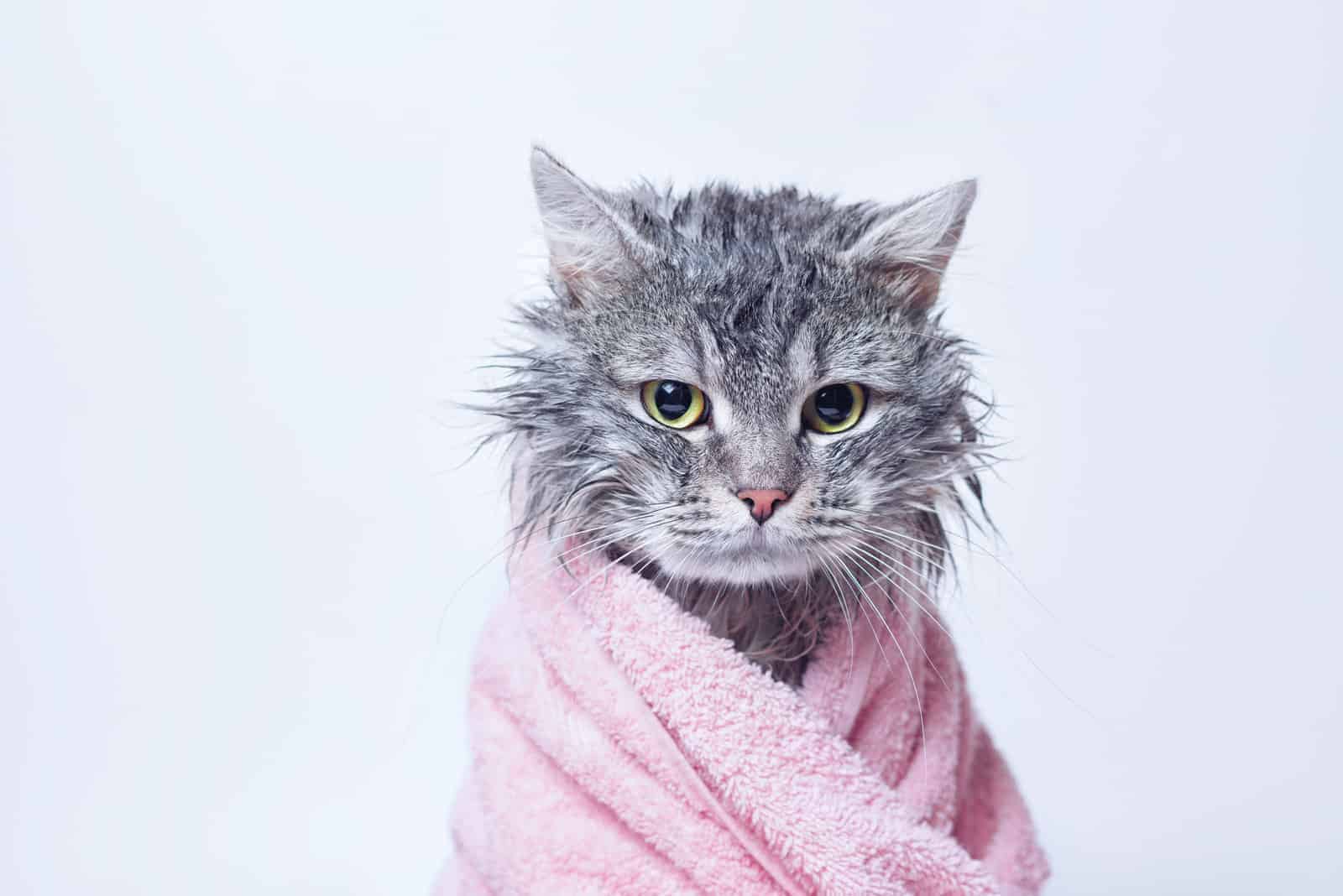
There are some external and internal factors that affect the frequency of cat bathing. Every cat breed is different, and there are so many different breeds. Plus, every cat is unique, and will have different grooming requirements.
How often should you wash your indoor cat depends on:
• The type of coat and length – cats with longer coats require more regular brushing than those with shorter coats.
• Self-grooming tendencies (whether your cat can’t or won’t groom itself) – some cats get lazy or some health condition prevents them from cleaning themselves, which is where you need to step in.
• Cat weight – overweight cats may have trouble reaching all areas of their bodies, so you’ll be required to help clean their unreachable body parts.
• Daily activities – if your cat often has the zoomies throughout the day, it may need more bathing than a cat who prefers to lounge around.
• Outdoor/indoor cat – outdoor cats, as expected, may get dirtier as well as being exposed to ticks, various parasites, and flea infestation.
Situational Cat Baths
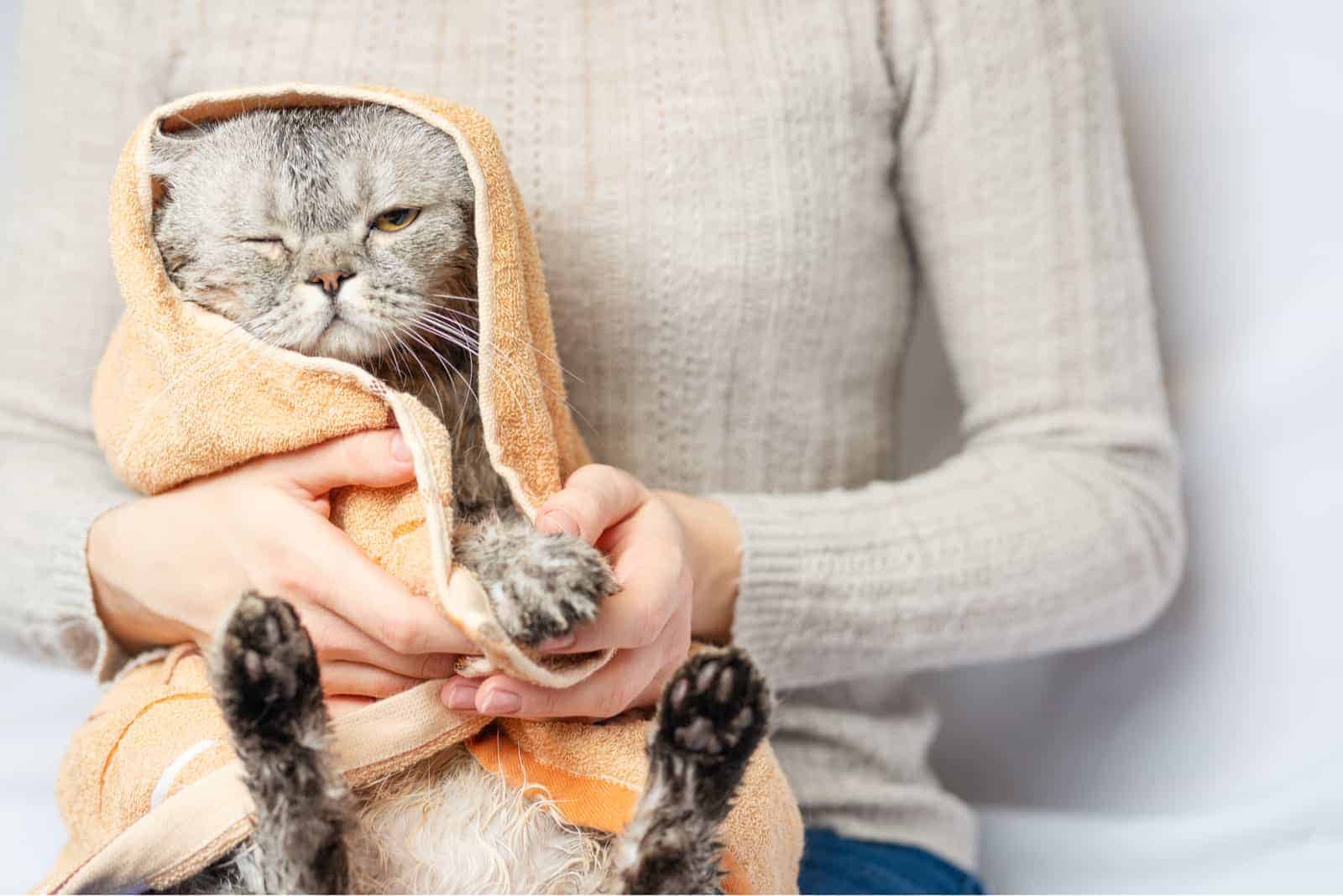
There will always be certain situations where you’ll simply have to bathe your cat, regardless of its coat length or breed.
However, there are also situations where more frequent cat bathing is necessary, when a cat requires a good wash, for example in the case of hairless cats, flea infestation, old cats, outdoor adventures, litter box accidents, etc.
You’ll be required to bathe your pet if…
If You Own A Hairless Cat
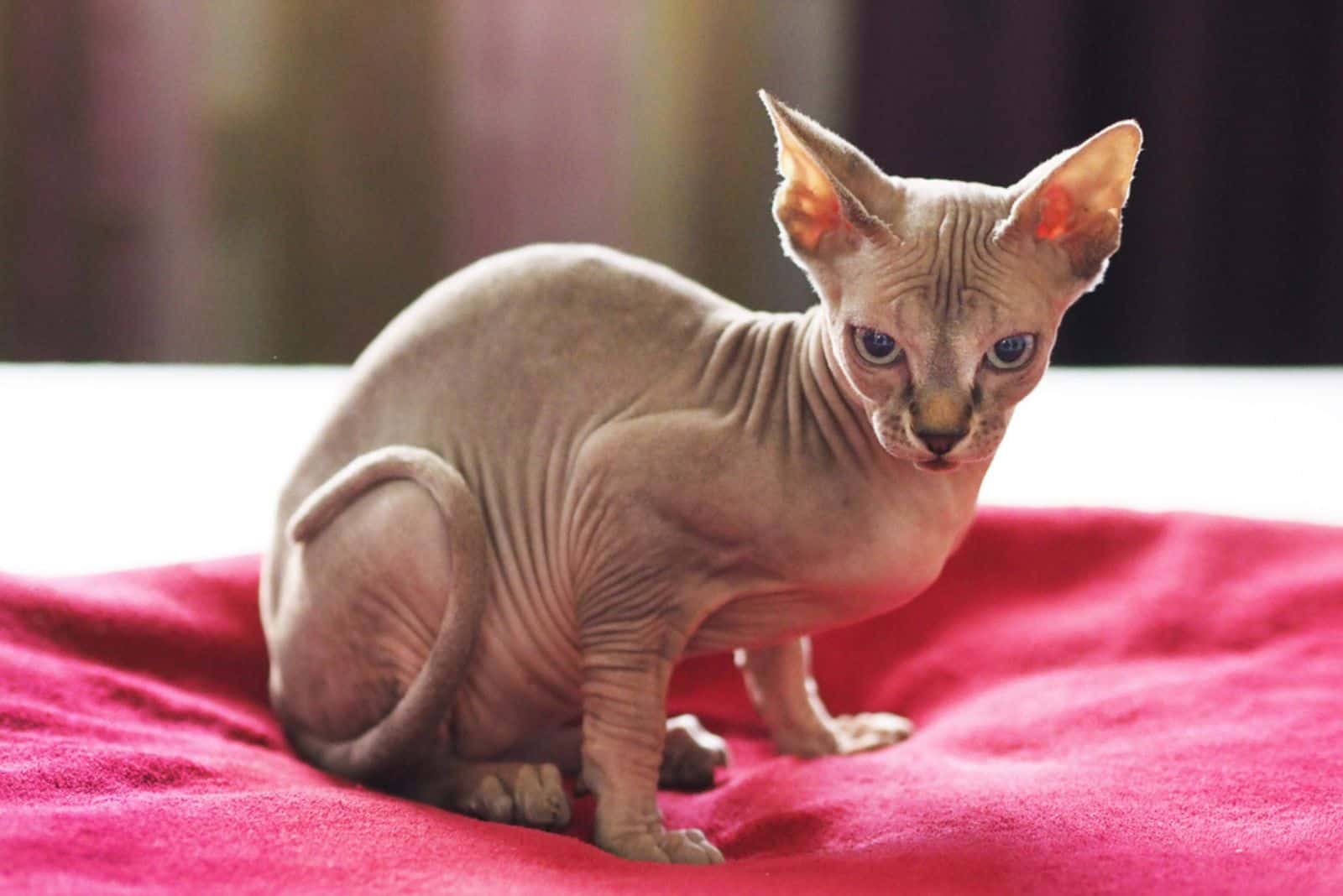
Hairless cats such as the Sphynx are an exception to the non-frequent bathing rule, since they acquire an oily coating on their skin which means they require regular baths, as regular as once a week.
Sphynx cats cannot regulate their natural oils because they do not have fur. These oils can get very messy and can clog pores, so they need to be washed almost every week.
In Case Of Flea Infestation
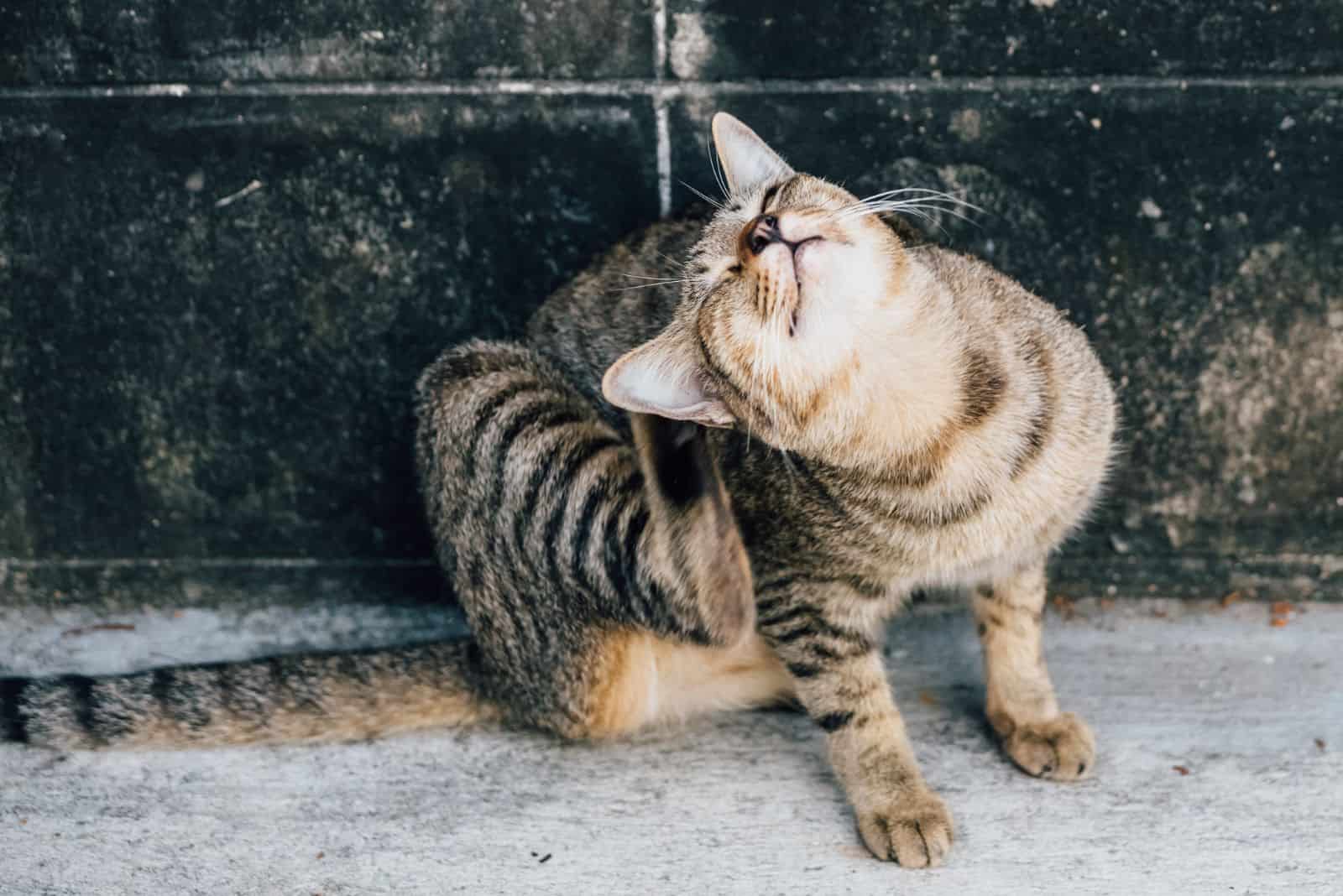
If you’ve ever adopted a stray cat, you probably noticed they were completely covered in dirt and fleas. Stray cats, and also your cat that gets out every once in a while, can easily get covered in fleas and will therefore need you to help get rid of them.
Clearly, you have to use flea shampoo and properly bathe your cat to remove all unwanted guests so you can get off to a clean start.
Note: It isn’t just rescue cats that get fleas. Any outdoor cat or cat that socializes with other cats may develop an infestation of fleas.
Also, Older Cats Require More Help
Older cats who can no longer turn around with ease or lift their legs and clean themselves as they used to, will require your help.
For example, cats with arthritis may have trouble moving their hinds and forelimbs. So they will need an extra hand getting groomed.
Outdoor Adventures
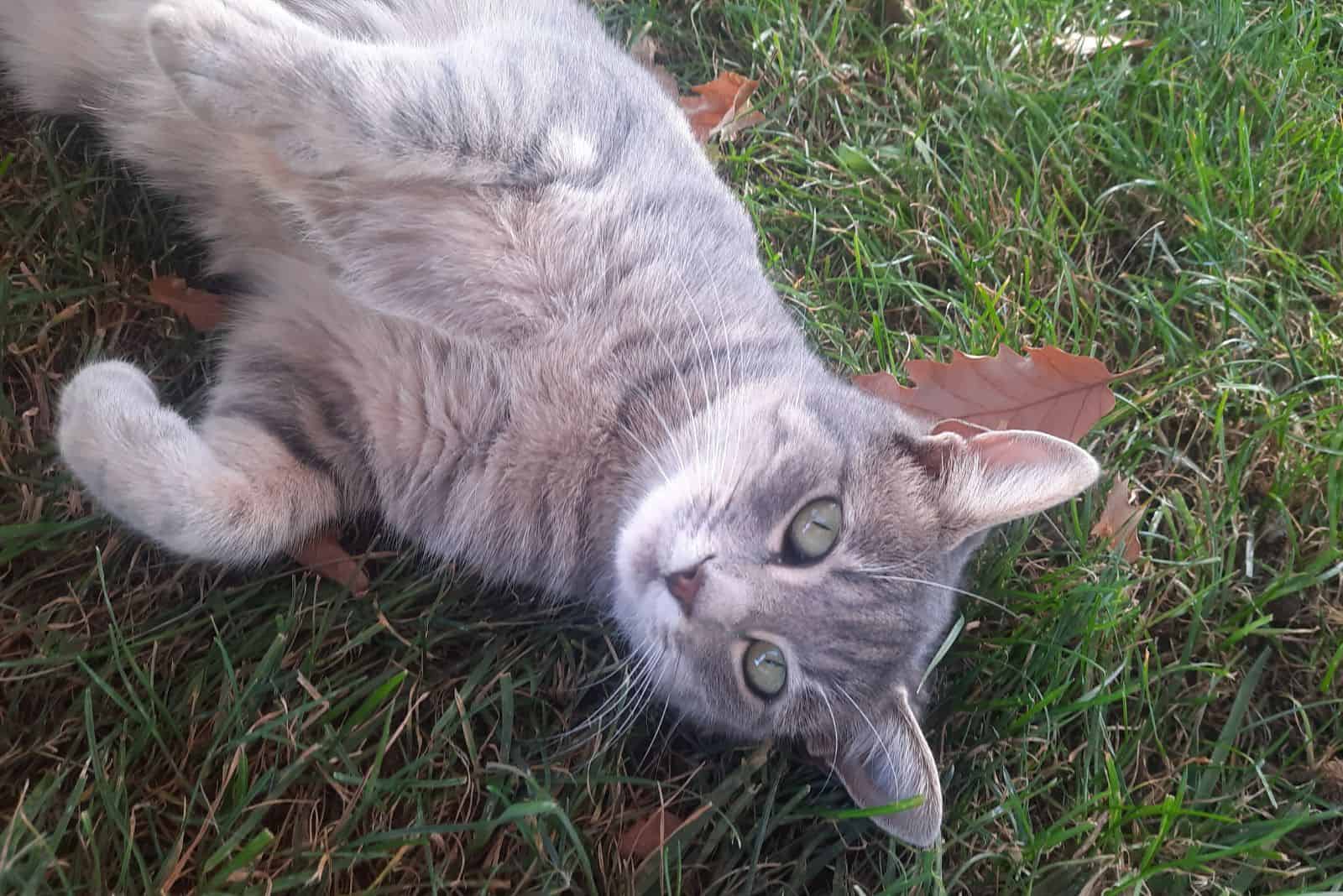
You should only bathe your cat when it’s really necessary. When your cat goes outside, it will probably end up going through mud, grass, or dirt.
All of this will accumulate in its coat. The next thing you know, it will have spread all over your house and you’ll notice your cat is irritated and itchy. This is one of the most crucial situations when you have to bathe your feline friend.
Litter Box Accidents
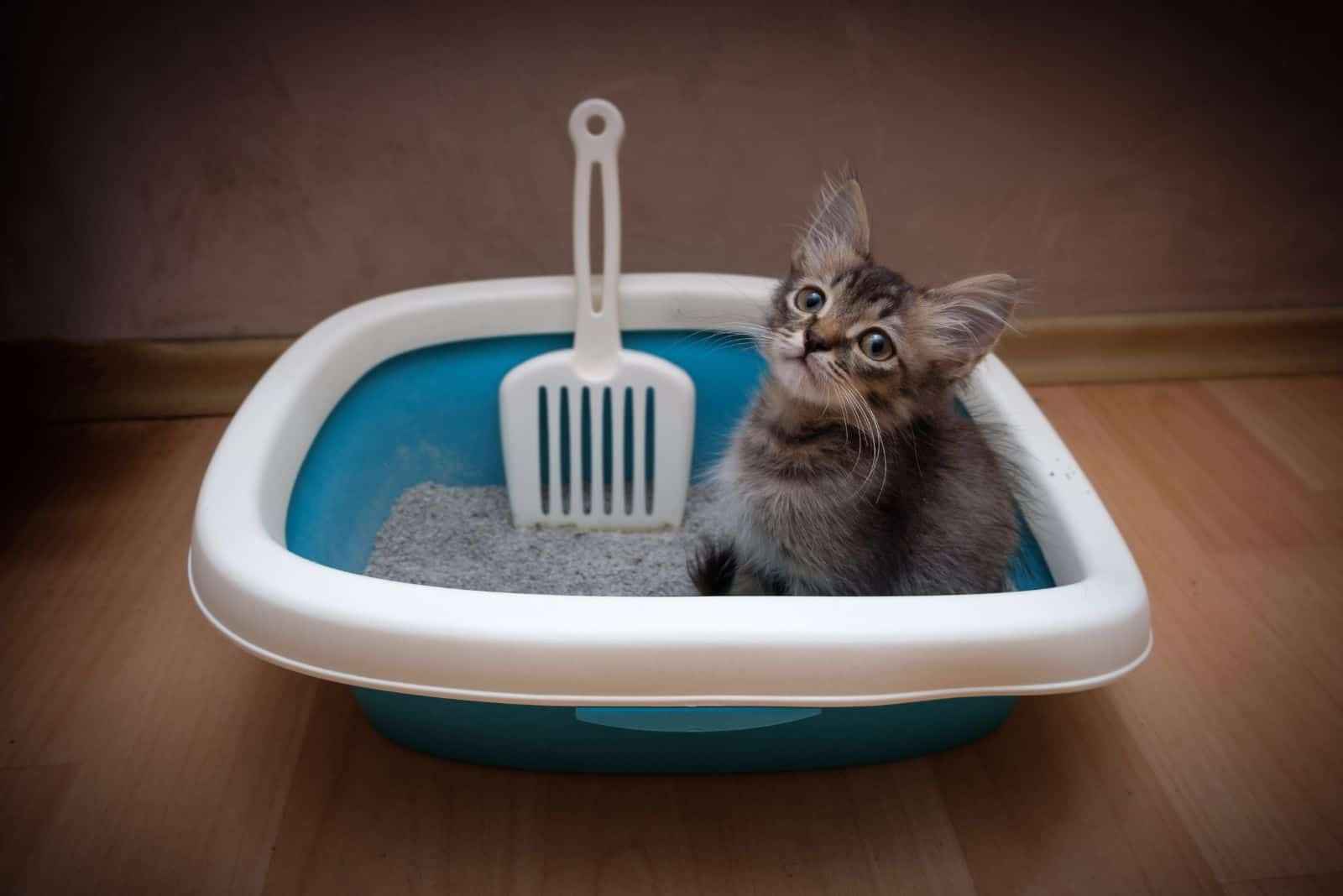
As a cat owner, it is your job to maintain your cat’s litter box clean and prevent it from overfilling.
When it comes to bathing your cat, sometimes poop can get stuck in your cat’s fur without it even noticing and that’s where you’ll need to step in and do the cleaning.
The Bottom Line Is…
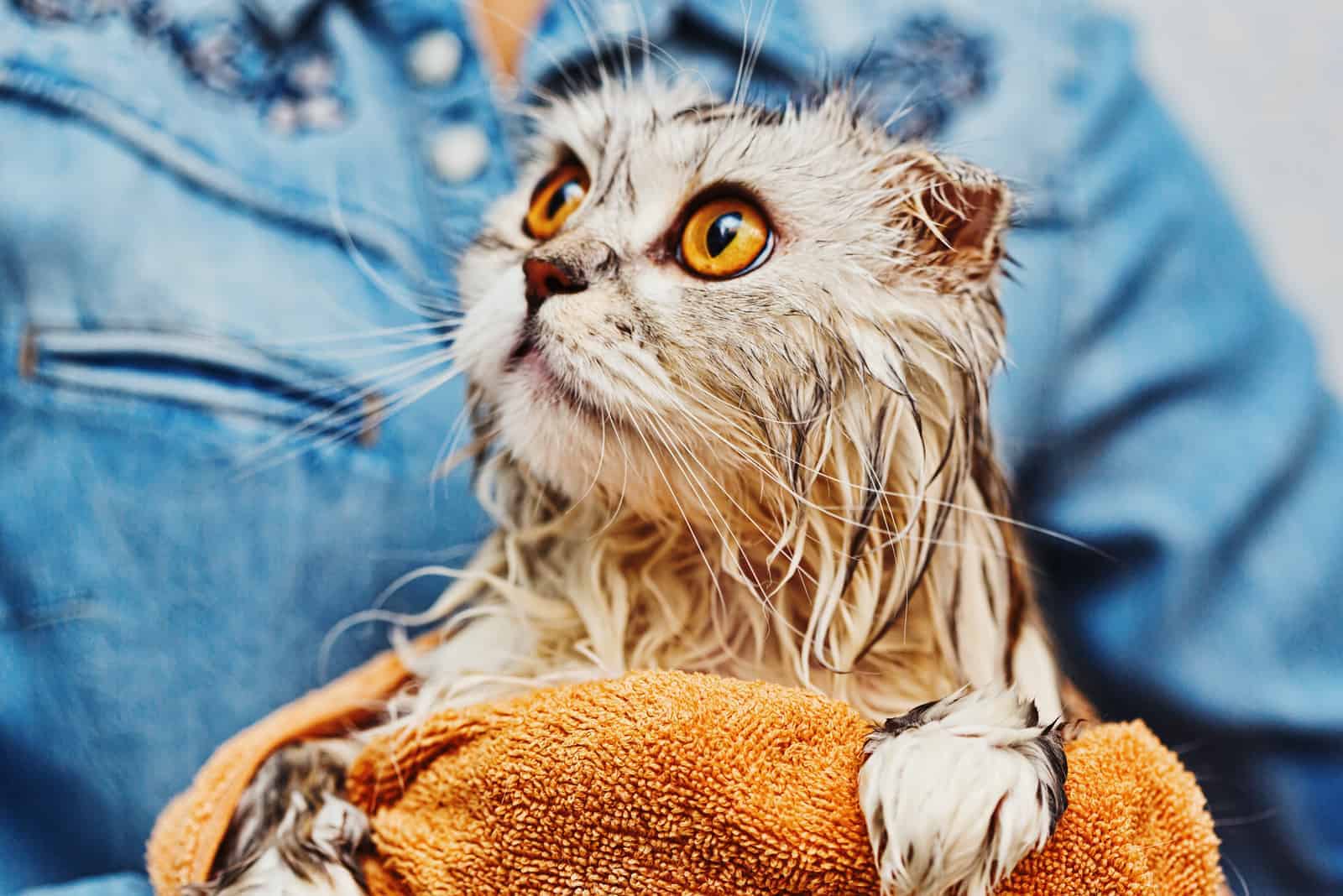
Cat bathing is necessary, sometimes because of a messy situation, and other times because of the nature of their coat or breed. As cats age or gain weight, your role in their cleaning routine becomes even more important.
For the most part, cats can maintain their own hygiene when it comes to their fur. You should give them a good scrub every now and then just to refresh their fur and skin.
In situations like the ones I mentioned above, where your cat goes outside and gets dirty (or if perhaps you own a Sphynx), you can jump out of the schedule and bathe your cat more often.

